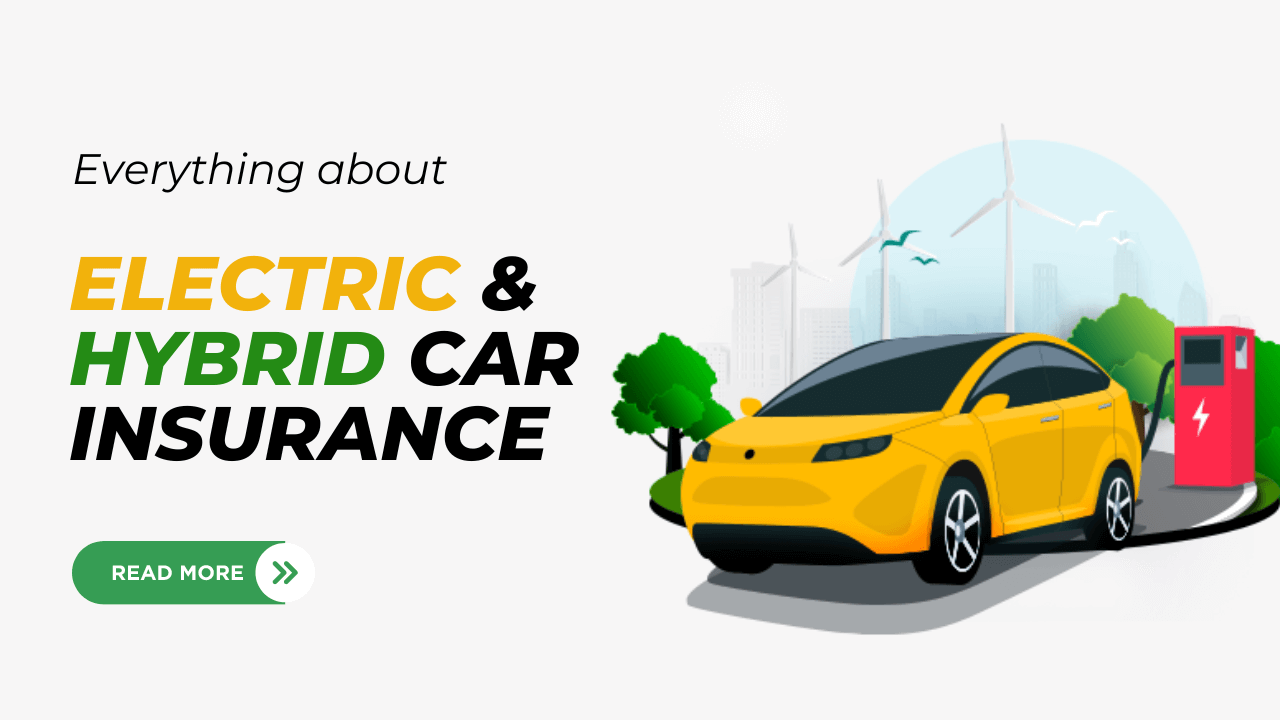Switching to an electric or hybrid vehicle is not only a step in the direction of a greener future but also has implications for your car insurance policy. So let’s dig into all you need to know about insuring these environmentally friendly vehicles, and why it’s important to understand nuances of electric and hybrid car insurance.
Understanding the Basics
Why Electric and Hybrid Car Insurance Costs More
Insurance for electric or hybrid cars can be more expensive compared to that of traditional gasoline powered ones. The main reason behind this is the high costs involved in repairing or replacing specialized parts as well as advanced technology used in such vehicles. For instance, changing an electrical vehicle battery may cost over $15,000. Moreover, other factors like scarcity of some parts and fewer mechanics who are trained on how to service such cars can increase repair expenses thus leading to higher premiums required by an insurer.
Factors Influencing Insurance Rates
There are several factors that can impact your insurance rate for an electric or hybrid vehicle, and these include:
- The make and model of the vehicle: Premiums fluctuate considerably among vehicle models. For instance, insuring a Tesla Model S might cost about $4,115 per year while a more affordable selection such as the Mini Cooper SE costs around $1,479 annually.
- Cost of repairs: These cars often have sophisticated technology and parts which make them expensive to repair. Insurance companies take this into account when computing premiums
- Safety features: Many electric and hybrid cars are endowed with advanced safety features that may help lower insurance rates by reducing accidents probabilities.
Coverage Considerations
In choosing insurance for an electric or hybrid vehicle, several important aspects of coverage should be considered:
- Comprehensive Coverage: This includes damage to your car that is not caused by collision such as theft, fire and natural disasters.
- Collision Coverage: After an accident, this pays for fixing your car regardless of who was wrong.
- Liability Coverage: This has a great significance most times compulsory by the legislations. It covers bodily injuries and damages to property that you cause others in an accident.
- Uninsured/Underinsured Motorist Coverage: It provides coverage in case of collisions with uninsured drivers.
Discounts and Savings
Although the premiums are generally higher ones, there are ways to save on insurance for your electric or hybrid vehicle:
- Green Vehicle Discounts: Many insurers offer discounts on hybrid and electric cars. Farmers Insurance, for instance, gives a 10% discount on such vehicles.
- Multi-Policy Discounts: Combining auto insurance with other coverage like home and renters can lead to big savings.
- Safe Driving Discounts: Having a clean driving history may also decrease premium rates.
Shopping Around
An important exercise to do is to compare rates from different insurers. For instance, State Farm, Geico, Progressive and Nationwide are all famous for their low rates on electric and hybrid vehicles. Besides, Tesla has its own insurance in select states which might be appealing to Tesla owners.
My Experience with Electric & Hybrid Car Insurance
As someone deeply involved in the world of auto insurance, I’ve had extensive experience navigating the intricacies of insuring electric and hybrid vehicles. Transitioning from insuring traditional gas-powered cars to these greener alternatives highlighted several unique challenges and benefits. One of the most striking differences was the cost of coverage. Electric and hybrid vehicles, with their advanced technology and specialized parts, typically come with higher premiums. However, the array of discounts available—like those for green vehicles, multi-policy bundles, and safe driving—can significantly offset these costs .
Moreover, the market for insuring electric and hybrid cars has increasingly become more competitive. Changes in insurance policies have been made to adjust with the growing numbers of eco-friendly drivers by insurers. This contest has resulted in cheaper and wider coverage options over time. Preliminary insurance costs may put one off however, from my own experience as a car owner I can tell that an electric–powered vehicle or a hybrid comes with long run advantages such as lower fuel expenses, reduced maintenance fees, and contributing into a better atmosphere that makes it be seen as an investment .
Final Thoughts
It might actually cost you more to insure your electric or hybrid vehicle than it would for a conventional car but the environmental benefits and possible savings on fuel and maintenance make it worth considering. Understanding specific coverage needs and taking advantage of any available discounts will help you find a policy that suits your pocket while protecting your green machine.


Comments are closed.